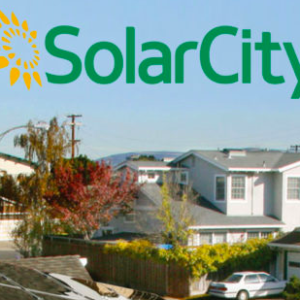Elon Musk knows how to burn through cash — possibly because he builds cars that have a tendency to catch fire. About 40 times, so far, and most recently on a highway outside of Moscow. Sometimes they spontaneously combust while parked or recharging.
This latter problem led to an embarrassing over-the-air “update” that addressed the fire problem by increasing the range problem. To prevent spontaneous combustion during recharging, the update peremptorily reduced the apparently fire-prone battery pack’s capacity to accept charge, reducing the car’s range.
Supposedly, this was done to “improve longevity” of the expensive battery pack, but it’s curious that the update was issued soon after another parked Tesla went up in smoke — this one in a garage in Shanghai, China — taking several other cars parked nearby to vehicular Valhalla along with it.
The range-diminishing “update” understandably irritated owners of the affected cars, some of whom saw the range of their vehicle plummet overnight by as much as 40 miles.This is a big deal when your car’s range was only 200 or so miles when fully charged — and when it can take hours to recover a full charge.
Now Musk has another hot problem: Self-immolating solar roofs.
They’re made by SolarCity, one of Musk’s side businesses designed to support his electric car business. Several private homes — and several big businesses, including Walmart and Amazon — that had Solar City systems installed have experienced rooftop barbecues.
David Burek of North Dartmouth, Massachusetts, smelled something burning and went up into his attic to investigate. He found melted wiring that had caused an earlier fire that firefighters told him would likely have burned down his house had a fortuitous rainstorm not put it out.
It wasn’t fortuitously raining when Maryland homeowner Ken Tomasello’s roof caught fire. A section of it collapsed and the resultant damage ($300,000) made the house uninhabitable for more than a year, according to an interview Tomasello gave to Business Insider.
“When I heard about the Walmart fires, I wasn’t surprised at all,” he said.
Musk, per usual, put on the Sgt. Schultz act. I know nothing! Nothing!
“In the past year, less than 1 percent of 1 percent of sites have experienced any type of thermal event necessitating any form of emergency response, and there have been no injuries,” the company said in a statement. “While we strive for zero risks across all of our products, this rate of risk presents less of a household danger than a home washer or dryer.”
But the actions of SolarCity — like those of Tesla with regard to its mobile crematoria — indicate someone did know something.
If Teslas aren’t vulnerable to catching fire while recharging, why was it necessary to “update” them by reducing the amount of charge they can accept? Probably because it’s cheaper and easier than replacing what even some die-hard Tesla defenders now suspect are in fact defective, fire-prone batteries.
Though all lithium-ion batteries (the type of batteries used in most electric cars) are susceptible to fire caused by accident damage to their protective case — which can trigger a short circuit and “thermal runaway” — only Tesla electric cars have caught fire while not actually moving.
Similarly, only SolarCity’s panels seem to have a tendency to go up in smoke.
In what can be read as a tacit admission that something’s not quite kosher, homeowners who bought a SolarCity system have reportedly been advised that they should schedule preventive maintenance as soon as possible.
Hint, hint.
David Burek says he got the preventive maintenance advisory about five months after he’d had the panels removed (and the fire damage fixed). “They said our system had been flagged for bad connectors,” he told Business Insider. “I told them there was no system to maintain because they’d already caused a fire on my roof.”
“Bad connectors?”
Isn’t that another way of saying defective connectors? Walmart apparently thinks so. The retail giant is suing over seven fires that erupted at stores/warehouses with Solar City panels on their roofs. Musk says these are “isolated incidents.”
Walmart’s lawsuit says the fires were a result of shoddy materials/installation; that the systems installed by Solar City “failed to meet industry standards.”
Allstate and Citation Insurance have also sued, alleging negligence and breach of contract.
Putting out all these fires is contributing to Tesla (and Solar City’s) cash burn. Tesla stock is down about 35 percent so far this year; Musk himself was forced by the SEC to give up one of his corporate offices after a series of bizarre Tweets.
Solar City laid off about 9 percent of its “energy team” last year and has been losing market share for years.
The miracle is they’re still in business at all.

